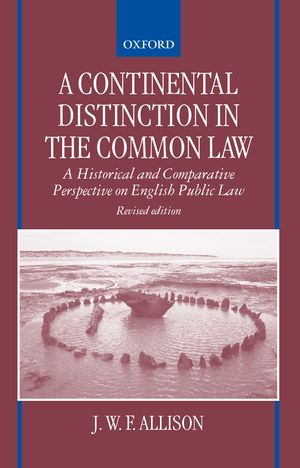
The development of an autonomous English public law has been accompanied by persistent problems, lack of systematic principles, dissatisfaction with judicial procedures, and uncertainty about the judicial role. It has provoked an ongoing debate on the very desirability of the distinction between public and private law.
In this debate, a historical and comparative perspective has been lacking. A Continental Distinction in the Common Law introduces such a perspective. It compares the recent emergence of a significant English distinction with the entrenchment of the traditional French distinction. It explains how persistent problems of English public law are related to fundamental differences between the English and French legal and political traditions, differences in their conception of the state administration, their approach to law, their separation of powers, and their judicial procedures in public-law cases.
The author argues that a satisfactory distinction between public and private law depends on a particular legal and political context, a context which was evident in late nineteenth-century France and is absent in twentieth-century England.;He concludes by identifying the far-reaching theoretical, institutional, and procedural changes required to accommodate English public law.